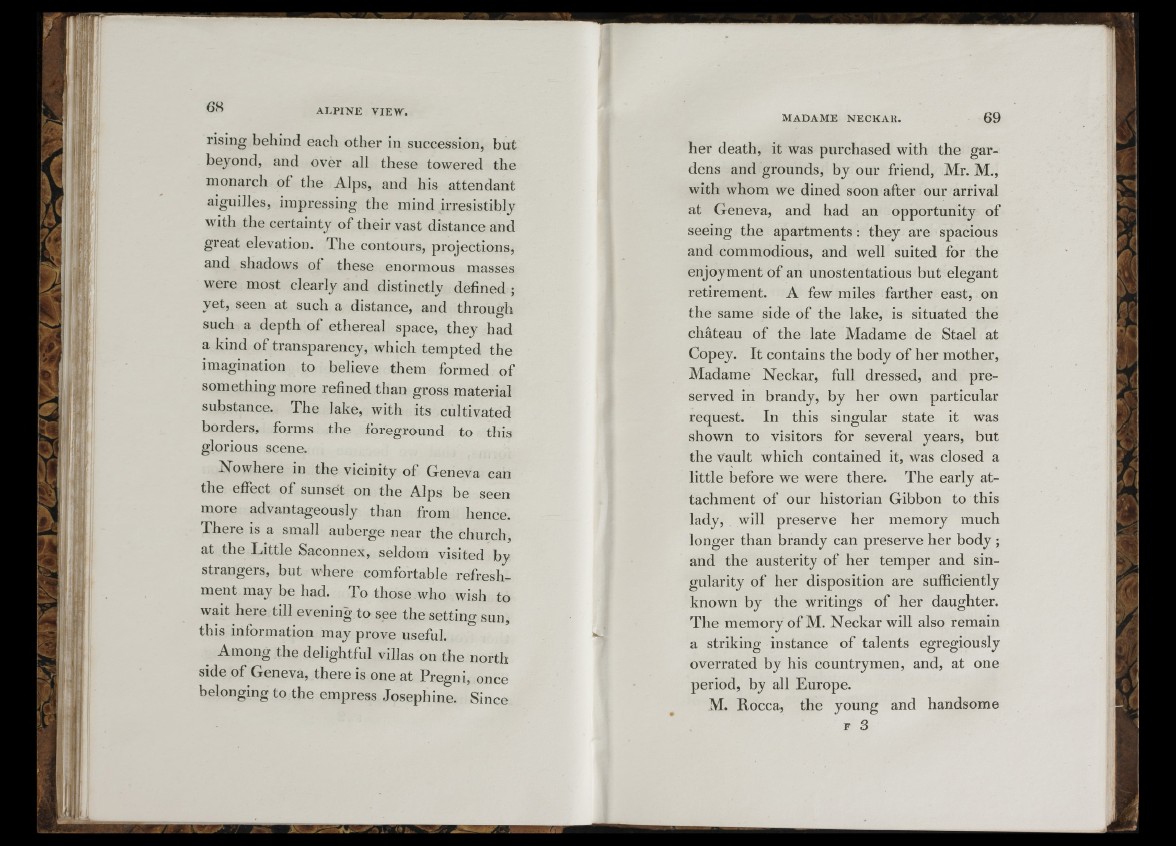
6S ALPINE VIEW.
MADAME NECKAR. 69
11 I
rising- behind each other in succession, but
beyond, and over all these towered the
monarch of the Alps, and his attendant
aiguilles, impressing the mind irresistibly
with the certainty of their vast distance and
great elevation. The contours, projections,
and shadows of these enormous masses
were most clearly and distinctly defined ;
yet, seen at such a distance, and through
such a depth of etliereal space, they had
a kind of transparency, which tempted the
imagination to believe them formed of
something more refined than gross material
substance. The lake, with its cultivated
borders, forms the foreground to this
glorious scene.
Nowhere in the vicinity of Geneva can
the effect o f sunset on the Alps be seen
more advantageously than from hence.
There is a small auberge near the church,
at the Little Saconnex, seldom visited by
strangers, but where comfortable refreshment
may be had. To those who wish to
wait here till evening to see the setting sun,
this information may prove useful.
Among the delightful villas on the north
side of Geneva, there is one at Pregni, once
belonging to the empress Josephine. Since
her death, it was purchased with the gardens
and grounds, by our friend, Mr. M.,
with whom we dined soon after our arrival
at Geneva, and had an opportunity of
seeing the apartments : they are spacious
and commodious, and well suited for the
enjoyment of an unostentatious but elegant
retirement. A few miles farther east, on
the same side of the lake, is situated the
château of the late Madame de Stael at
Copey. It contains the body of her mother,
Madame Neckar, full dressed, and preserved
in brandy, by her own particular
request. In this singular state it was
shown to visitors for several years, but
the vault which contained it, was closed a
little before we were there. The early attachment
of our historian Gibbon to this
lady, will preserve her memory much
longer than brandy can preserve her body ;
and the austerity of her temper and singularity
of her disposition are sufficiently
known by the writings of her daughter.
The memory o f M. Neckar will also remain
a striking instance of talents egregiously
overrated by his countrymen, and, at one
period, by all Europe.
M. Rocca, the young and handsome
r 3